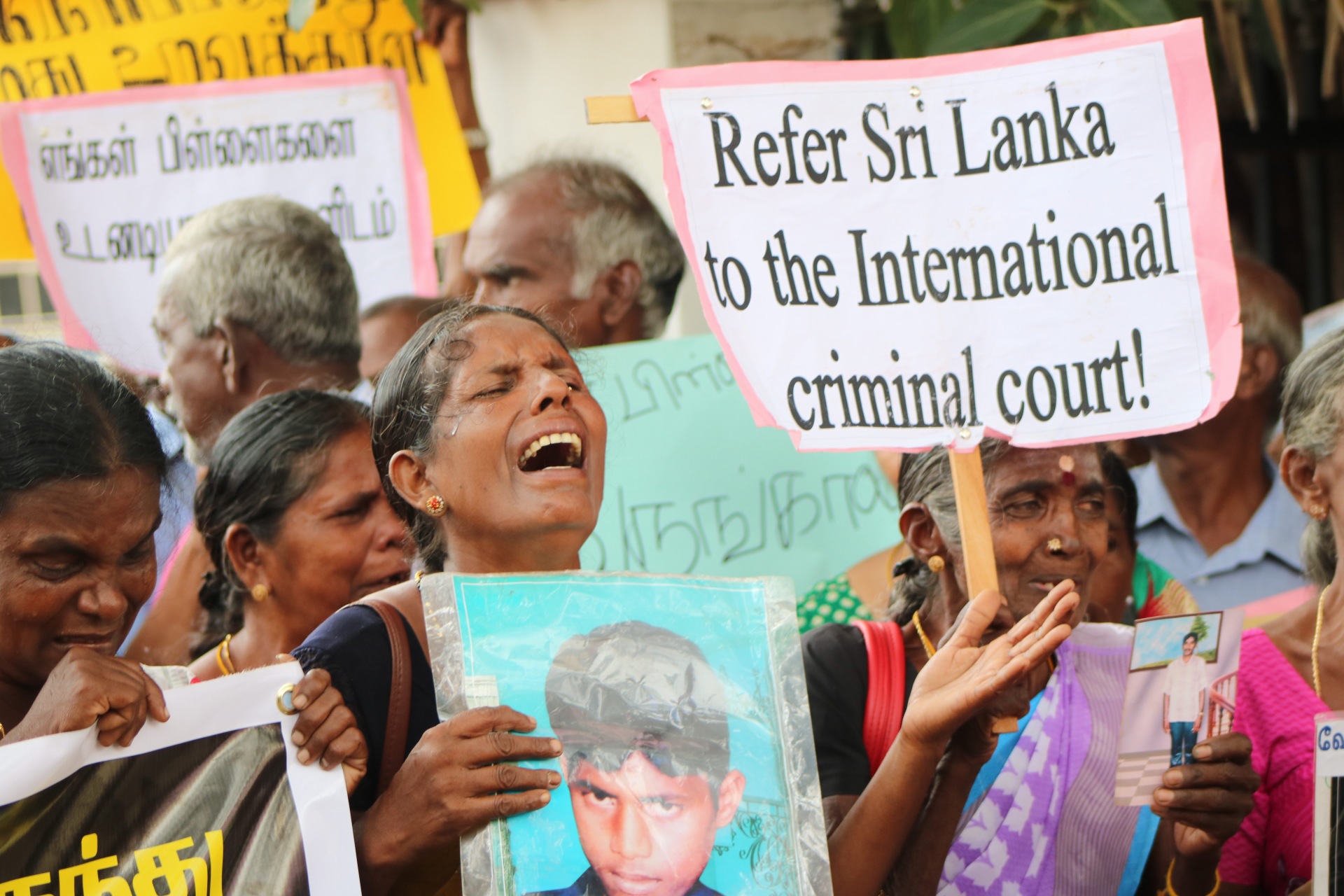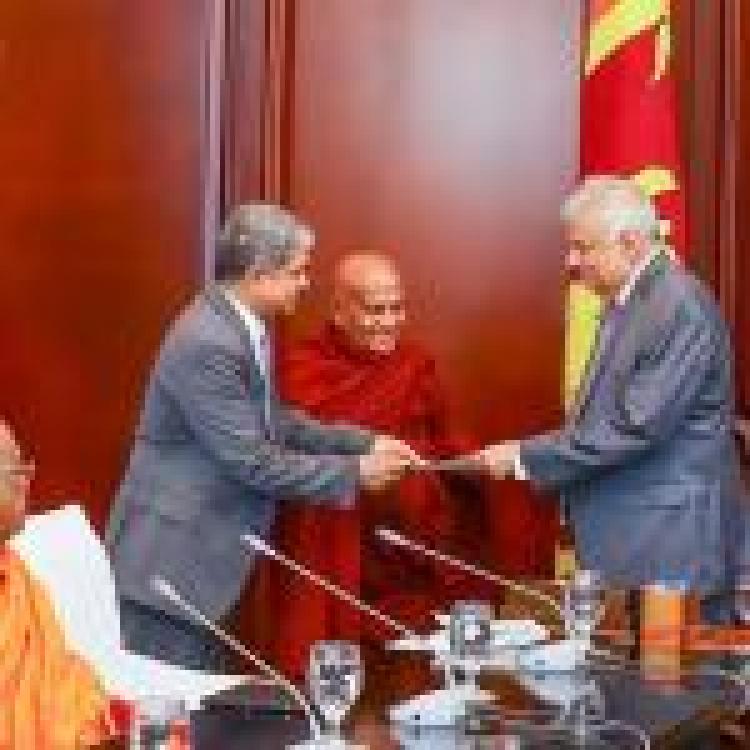
Tamil families of the disappeared in 2019, demanding Sri Lanka be referred to the ICC.
In response to a Sri Lankan government-backed initiative that has seen the Global Tamil Forum (GTF) sign a joint declaration with Sinhala Buddhist monks, a host of Tamil diaspora organisations from around the globe have reiterated their commitment for Sri Lanka to be referred to the International Criminal Court for genocide and for an international monitored referendum to be conducted in the Tamil homeland.
“The key organizations listed below within the Tamil Diaspora, which closely align with the views of the Tamil people in the North-East, have developed their position through extensive dialogues with members of the grassroot community,” said the joint statement, which was released this morning.
“These discussions have involved civil society leaders, religious figures, families of the disappeared, and academic communities, including those from the Universities of Jaffna and Batticaloa.”
Some of the signed organisations were previously part of the GTF.
The statement said the principles they adhered to include:
- An internationally conducted and monitored Referendum that allows people living in the north-eastern region of the island of Sri Lanka prior to 1948 and their descendants to find a democratic, peaceful, permanent political solution that meets Tamils' legitimate aspirations.
- An interim International Protection Mechanism to be established in the north-eastern region of the island due to existing excessive military presence and occupation.
- The Repeal of the Sixth Amendment to the Sri Lankan Constitution to provide freedom of political rights to the people.
- The referral to the International Criminal Court with respect to genocide, crimes against humanity and war crimes, and investigation and legal action before the International Court of Justice under the Convention on the Prevention and Punishment of the Crime of Genocide and the Convention against Torture.
“We appeal to the Sinhala-Buddhist clergy and southern civic society to understand, acknowledge and embrace these aspirations,” the statement concluded. “Such a progressive step would demonstrate a significant shift towards reconciliation among all communities and contribute to finding a just and lasting resolution to the Tamil National question, paving the way for a stable, secure and prosperous Sri Lanka.”
Read the full statement here.
The declaration signed by GTF and the Sinhala Buddhist clergy is a series of six brief statements, that call for “a Sri Lanka where every individual can live peacefully with dignity, trust, and no fear or suspicion, enjoying equal rights”.
The statements speak of a “new constitution that guarantees individual and collective rights”, “devolving power in a united and undivided country” and “a Sri Lanka that is reconciled and committed to learning from its past and creating measures including accountability to ensure that such suffering never occur again”.
It comes after the GTF had participated in several meetings with the Sinhala Buddhist clergy over recent months.
.jpg)
The GTF was a major Tamil diaspora umbrella organisation at its formation in 2009, however, its membership now consists of only the Canadian Tamil Congress (CTC) and Norwegian Tamil Forum (NTF), as well as individual members.
“It is important to note that the GTF no longer holds the representation it once did,” said the Tamil diaspora organisations. “Since its formation in September 2009 in Paris, France, the majority of the original 14 countries / Tamil-organizations, including 10 from Europe, have dissociated from the GTF. Additionally, organizations such as the British Tamil Forum, Australian Tamil Congress, and United States Tamil Action Group (USTAG), formerly known as USTPAC, have also left the GTF.”
“As a result, any outcomes from this engagement lack the support of the majority of the Tamil Diaspora and thus, are of limited significance and credibility.”
The launch of the GTF initiative comes just days after the Sri Lankan security forces launched a crackdown on those attempting to commemorate Maaveerar Naal in the North-East, detaining Tamils under much criticised anti-terrorism legislation.

